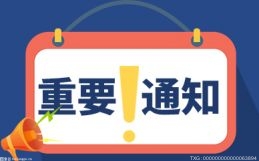From community work to balcony concert, foreign volunteers lend a hand in Shanghai’s anti-epidemic battle
A view of Shanghai. Photo:VCG
Editor's Note:At present, the Shanghai epidemic prevention and control battle is at a critical stage. As an international trading and communicating hub with a wide range of cultures, the pause in this cosmopolis has tugged at the heartstrings of the world.Meanwhile, people in Shanghai have shown their unique attitude toward this sudden change in their lives. Be they foreign volunteers who joined the comprehensive anti-epidemic action in local communities, or those who tried to follow recommended protocols with optimism, or people who have continued to live their Shanghai-style lives, the city offers examples of resilience and a determination to fight at every turn.When in Shanghai, do as the Shanghainese do. In the following days, the Global Times will present different stories unfolding during the anti-epidemic battle in Shanghai, to showcase the city's tenderness, optimism, and diversity.During the current COVID-19 outbreak in Shanghai, some foreigners in Shanghai have joined forces with the city to overcome difficulties and lend a hand to the comprehensive anti-epidemic effort as community volunteers, providing practical help as an international force to Shanghai's "dynamic zero" vow.As an important window of China, Shanghai has attracted a large number of foreigners with its cosmopolitan atmosphere. According to data provided by the Shanghai government, currently 215,000 foreigners live and work in Shanghai, accounting for 23.7 percent of the country's total, ranking first in terms of foreign populations in the country. Reporters from the Global Times recently contacted several international volunteers who have offered to help in the fight against the epidemic in Shanghai and listened to their thoughts and stories in the process. They said that the experience of fighting against the epidemic with the people of Shanghai helped them better understand China and love Shanghai even more. In their opinion, they are a part of the city, and it is their duty to defend "Shanghai."'My experience gave a distinct feeling of the bond between comrades during the Long March'
Jacob von Bisterfeld is among a group of volunteers distributing supplies at a community gate. Photo: Courtesy of Lu Yifan
Jacob von Bisterfeld from New Zealand sprang to action as a community volunteer in Shanghai's Songjiang district during the city's lockdown. Now, his typical day begins with ushering residents out of their respective houses to receive a nucleic acid test in his imperfect Putonghua, assisting in testing arrangements, collecting trash from door to door, and delivering supplies with his makeshift airport luggage carriers and a four-wheel push-trolley."He is the very energetic who always rushes to the front over many younger volunteers," Lu Yifan, his neighbor, told the Global Times. "Residents affectionately call the aged expat 'Lao Luo,' as he has given himself the Chinese name Luo Jiangqiang."A video clip of gray-haired Luo bending over to arrange grocery supplies on a rainy day, wearing a thick protective suit and holding an umbrella, has been widely shared and liked online.Luo, a retired professor from Shanghai Jiaotong University, has been living in China for about three decades and has gotten involved in many voluntary projects while in the education sector. Omicron-hit Shanghai falling into unprecedented difficulties makes him feel heart-broken.After Shanghai's lockdown, he was one of the first to sign up as a multilingual volunteer. When receiving his green volunteer vest, Lao Luo felt excited and relieved to finally be able to "give back" to the community, with at least three hours put in every day as a volunteer. "What motivates foreigners to volunteer in their adopted country to do important but mostly menial tasks that used to be done for them is an inborn sense of responsibility, the knowledge that essential services might collapse and endanger the lives of the larger community. And that the financial capacity of the government during these enormous calamities is not unlimited," Luo told the Global Times. "Volunteering is also a good way of making friends and getting fully integrated into the local scene.""My experience of working with my comrades gave a distinct feeling of the bond between comrades during the Long March in the 1930s and living in the cave houses of Yan'an. Sometimes, when the rain was pelting down on us on a cold night and we volunteers were filling shopping bags with vegetables I felt as if I was experiencing some of the deprivations of the Long March," said Luo. "The camaraderie of a group of volunteers shouldering arduous or menial tasks together, and our team of volunteers have cemented a solid bond among each other and I am happy to be accepted as a comrade," said Luo.Luo believed that time will tell if the "zero-COVID tolerance" course taken by the Chinese government was the best solution. "The current short-term discomfort for many and suffering for some will ultimately be of great benefit for the people's wellbeing and the economy. And last but not least, of course, the most important benefit for every one of the 25 million Shanghai residents will be an absolute minimum of fatalities and untimely deaths," Luo said. 'Balcony music cheered people up'
Steven Back wearing a protective suit in his compound in Shanghai in early April. Photo: Courtesy of Steven Back
The megacity of 25 million residents has been making efforts to combat the virus and people's sentiments have fluctuated depending on the COVID-19 epidemic situation. Hungarian Steven Back, who has been living in Shanghai for about 18 years, also felt the same as his community was put under closed-loop management.Like many residents living in the city, Back felt surprised in the beginning when the city was put under a citywide "static management." Living in a nice compound with about 5,000 people, Back was quite familiar with some neighbors and became a volunteer two days later after his compound was put under lockdown on April 1. Holding a loudspeaker, he encourages residents to come down and queue up for tests. Even while having to stand for periods of six to nine hours a day in hot weather wearing a protective suit, he still considers it fun. "It was very natural for me to do it," Back told the Global Times, noting that he wanted to help his neighbors to relax and feel less nervous. He was also warned by his volunteer peers that some people may have a very bad temper and would not cooperate. "However, I've never had this situation and everybody is very friendly."Back was also quite proud that his daughter would paint on his "Da Bai" clothes (protective suit) every night with Chinese and Hungarian flags to cheer them up. "It's very showy," he said, believing that it might also be fun for others.As infections rose, some residents began to believe that taking a nucleic test might increase their chances of getting infected and would refuse to cooperate. Despite this, Back would still try his best to cheer his neighbors up and encourage them to be positive and happy. Together with about 40 other neighbors, they held a successful balcony concert to help people relax and elevate their moods. When seeing people dancing, singing, and using electric torches to make a light show, Back felt the great comradery alive and well in his community. "Everybody was having a very good time," Back said, noting that all the work they have done has been well worth it.Through the dynamic zero-COVID policy, "China has been very successful at saving lives and maintaining relatively high productivity compared to other countries," Back said. He also mentioned that in his country, many people chose to receive China-made COVID-19 vaccines as they trusted the products. Back has made an appointment with his new friends who he had met during his volunteer work to go out for a drink once the restrictions are lifted. "We plan to go out and celebrate!"'Shanghai has become my second hometown'
Korean volunteers in Shanghai help transport supplies during lockdown on April 21. Photo: Courtesy of Park Chang-joo
At a residential community in Shanghai's Hongqiao Town, Korean resident Park Chang-joo, who created three WeChat groups for some 1,200 Korean neighbors in early 2020 at the beginning of the COVID-19 outbreak, was busy communicating the latest local anti-epidemic policies, answering questions, and offering helps to Korean residents on WeChat all day amid the current city lockdown.A Putonghua-speaking entrepreneur who has been running a business in Shanghai for decades, Park now serves as an anti-epidemic volunteer in his community, where more than 30 percent of the residents are Korean. Since residents were asked to self-quarantine at home from April 1, each day, Park receives WeChat messages from 30-50 of his Korean neighbors asking for help."How to get a new QR code for a nucleic acid test; how to buy daily necessities at home; what rules to be followed during at-home quarantine; where to get a laptop charging cable... For their questions or requests, I either directly answer or send them to the Chinese community staffers," Park told the Global Times. The unexpected weeks of quarantine may have worried expatriates in Shanghai, including some Korean residents of Park's community. To help them relax and cheer up, Park shares with them pleasant music or funny videos via WeChat, and more importantly, explains to them Shanghai's anti-epidemic policies and goals in detail."I told them that the policies are for all of our safety and health," said Park. He said that some Korean residents in Shanghai have experienced some pressure during the lockdown, but most of them understand and respect the city's efforts in fighting against the virus.Park is the head of a 60-member Korean volunteer team serving several residential communities. As a bridge linking Korean residents and the Chinese, the team assists community staffers in organizing nucleic acid tests and delivering daily supplies like rice and vegetables to the homes of Korean residents."Last week, we helped a Korean food enterprise in Shanghai send free tofu products to all the residents," Park recalled. "It's so glad to see our neighbors, both Korean and Chinese, who later shared the dishes they made with the tofu and expressed their thanks on social media."Coming to Shanghai with his children in 2002, Park, who has been living in this city with his family for 20 years, does charity work to help people with disability. "Shanghai has become my second hometown," he told the Global Times. "I want to try my best to help the people in need here."
责编:庄鹏泽
推荐
- From community work to balcony concert, foreign volunteers lend a hand in Shanghai’s anti-epidemic battle
- 上海急诊实录:候诊区爆满拆凳子安置病患,不论“阴阳”救人优先
- 土耳其一民用教练机坠毁至少两人死亡
- 中国援老挝农村电子商务工程技术援助方案签署
- 中国援老挝邮电技术学院项目开工
- 通讯:让阅读陪伴孩子成长、塑造未来人格――记在黎学校就读的叙利亚难民子女
- 探访疫情下的上海急诊室:病人翻倍 医护人员冒着感染风险抢救患者
- 最新!张伯礼院士解答上海新冠肺炎中医药救治方案
- 【上海战疫】上海多家工业企业产能已恢复过半
- 他们四处奔走接力爱心
- 美国累计死亡病例逼近百万!研究称近24万美国人本可因接种疫苗免于死亡
- 海报|坚持“动态清零” 统筹推进疫情防控和经济社会发展
- 【上海战疫】上海海铁联运通道畅通高效
- 【上海战疫】上海洋山深水港正常运行 港口航运体系有序运转
- 看着舱内床位陆续变空,我感觉一切都值了
- 菜米油盐供应量充足,万家灯火便民店复工上线
- 法国姑娘Clarisse:弄堂里的“翻译员”
- 【上海战疫】跑腿骑手变志愿者:一天运送1吨物资
- 方舱日记(1)|入住三室一厅
- 美国想打谁,从不缺理由! | 且看“谎言帝国”系列评论
- 为植物保护贡献中国智慧(保护生物多样性系列报道)
- “中国神草”,造福世界五十年(大健康观察)
- 三问美国警察暴力执法(环球热点)
- 福州金山派出所暖心救助迷路儿童
- 福州金山派出所暖心救助迷路儿童
- 澳门开放合资格菲籍准外雇或外雇入境限制豁免申请
- 澳门学生“中国航天日”探索航天奥秘
- 在沪外籍居民分享抗疫故事
- 广州白云湖街战疫“幕后英雄”:全方位服务 24小时守护
- 佛山市行政检察办案团队:强化使命担当 依法能动履职
- 广州计划三年累计培育5000家市级“专精特新”企业
- 视频:中国实现“动态清零”的底气在哪里?张伯礼答记者问
- 观中国 | 向世界讲述粮食系统转型的中国方案
- 北京新发地商户:货源没问题没必要抢
- 美疾控中心拖延公开冠状病毒水貂传人事件 发言人称:这没什么可惊讶的!
- 积极提升心理健康素养 打赢疫情防控的“心理战”
- 美国累计死亡病例逼近百万!研究称近24万美国人本可因接种疫苗免于死亡
- 英格兰超七成人口感染新冠 比例或将继续上升
- 沪指盘中跌破3000点
- 新的组合式税费支持政策实施:退的是资金 增的是信心
- 巩固脱贫攻坚成果 让脱贫人口端稳就业饭碗
- 全面助力全民阅读 打造向上向善的数字文化生态
- 援沪护士家书:妈妈去“打怪兽”,请宝贝等一等
- “云服务”进方舱 24小时在线问诊
- 跑腿骑手变志愿者:一天运送1吨物资
- 图知道|3天累计新增70例本土感染者,北京近期疫情传播链条基本清晰
- 应对消费量骤增,北京要求重点保供企业按日常3倍以上备货
- 北京新增29例确诊病例,多与装修、学校、旅行团传播链相关
- 2022年全国儿童预防接种日:及时接种疫苗,保障生命健康
- 我国实现“动态清零”的底气在哪?张伯礼回应
- 北京:护国寺小吃(光明桥店)已涉5例感染者,今日朝阳区开启首轮核酸检测
- 4天内新增46例感染者,北京朝阳区防疫重点区域这样进行物资保障
- 北京3天累计新增70例本土感染者,多条传播链的首发感染者病毒序列一致
- 张伯礼:奥密克戎后遗症还有待于观察
- 浙江援沪护士讲述方舱内工作:护理不断细化,各组打好配合
- 北京新增5个中风险地区,共有1个高风险区6个中风险区
- 最终记:10+1
- 核检机构出“假报告”为何只被“警告”?记者现场探访
- 最高检、国家知识产权局将建立关联案件双向通报等制度
- 北京市朝阳区对生活、工作在区内的人员开展核酸检测
- 探访北京朝阳区多家超市:增加备货,全员停休,延时闭店
- 我国累计报告职业性尘肺病患者91.5万人,现存活45万人
- 北京:全市暂停旅行社经营市民在京团队旅游业务
- 人民来论:以高质量司法服务助中小微企业提振信心
- 美防长:很难追踪运送到乌克兰的武器
- 法国姑娘Clarisse:弄堂里的“翻译员”
- (上海战疫录)上海洋山深水港正常运行 港口航运体系有序运转
- 在上海住了20年的法国志愿者:“抗击新冠病毒是每个人的责任,这无关国籍”
- 北京朝阳区部分区域提升管控措施 区域内居民足不出区
- 生鲜电商启动应急机制,正在增加蔬菜肉禽蛋供货量
- 广东广州:除封控管控区外 小学幼儿园恢复线下教学
- 【稳中求进看开局】粮食稳产保供:守底线 满足需求 抗风险
- 网传上海劝外地人返乡?上海发布回应:系误读
- 时事观察局|俄乌冲突的核心博弈点是什么?谁是始作俑者?
- 我在蓝厅| 美国是最大的虚假信息散布者、胁迫外交施暴者、世界和平稳定破坏者
- 美边境人员查获价值3520万美元冰毒 藏于草莓泥运输车内
- 【上海战疫】跑腿骑手变志愿者:一天运送1吨物资
- 上海市老年医学中心新冠定点医院:医护身兼多职,老人们被“暖”着
- 专送药的“上海政协委员骑手”依然在路上,送药包却一直在变……
- 北京大型超市、社区便利店加大备货量、供应充足
- 花开满园方是春 京东图书423展现以阅读为核心的全景生态勃勃生机
- 海外网评:俄乌冲突2个月,美国加码军援“拱火浇油”
- 上海暴雨3名大白被刮跑?当地保安:大白当时在躲雨,3人受伤
- 依伯心存侥幸不戴护具 一根木条扎入腹中
- 两岸青年护河爱水 体验福州内河文化
- 闽清好人陈景钊:小买卖也有大诚信
- 依伯心存侥幸不戴护具 一根木条扎入腹中
- 10万株茉莉花苗全城派送 宣传推广“福”文化
- 两岸青年护河爱水 体验福州内河文化
- 福州:山货搭便车 山民乐开怀
- 闽清好人陈景钊:小买卖也有大诚信
- 一路一策 福州交警灵活应对“停车难”
- 10万株茉莉花苗全城派送 宣传推广“福”文化
- 永泰5万亩青梅丰收 手工采摘品相好
- 福州:山货搭便车 山民乐开怀
- 科特派助力蛋鸭笼养产业发展
- 一路一策 福州交警灵活应对“停车难”
- 福清培育重点上市后备企业89家
- 永泰5万亩青梅丰收 手工采摘品相好
- 福州检察机关首次聘任技术调查官
X 关闭
政策法规
X 关闭


